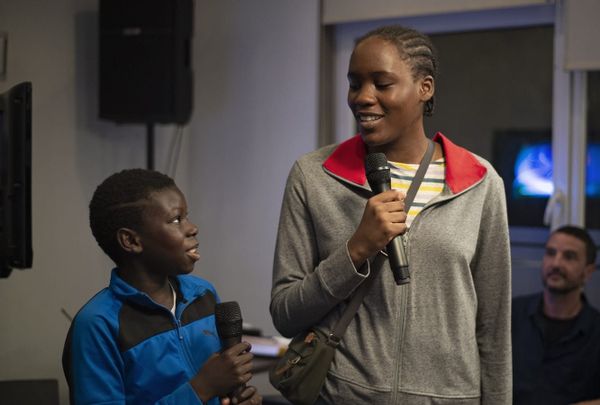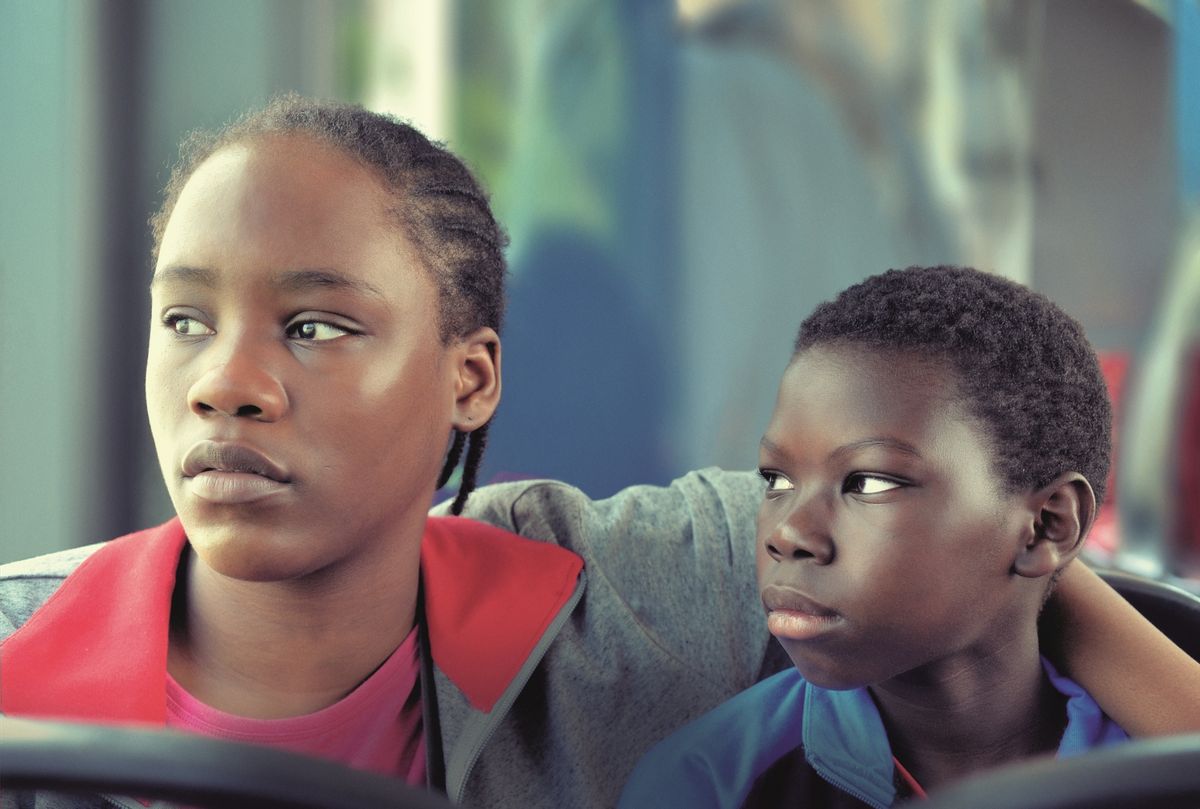Jean-Pierre and Luc Dardenne's latest foray into Belgian bleakness, "Tori and Lokita," is a heart-wrenching drama about the title characters, two African refugees in Europe. Shot in the filmmakers' patented, documentary-like style — to give the drama its urgency — this is yet another exacting portrait of the precarity oppressed people experience trying to get ahead in life.
Teenage Lokita (Joely Mbundu) is first seen being interviewed for what is later revealed to be an effort to get her papers. She hopes that getting citizenship, so she can find work as a home helper and get an apartment for her and her brother, Tori (Pablo Schils). This dream keeps Lokita going, even during her moments of greatest despair.
Throughout "Tori and Lokita," there is a sense that the characters will suffer a devastating loss.
Of course, viewers know this is a longshot, but it is impossible not to root for her. Joely Mbundu's flinty performance is a mix of cunning and quiet seething as she sizes up each situation she faces in pursuit of her end game. She calculates her lack of options when Betim (Alban Ukaj) — whom she and Tori deal drugs for — offers her an additional 50 Euros for oral sex.
Lokita is street smart, but she engenders pity as she is exploited and demeaned by almost everyone. Watch her register multiple emotions as she blinks in shock after Luckas (Tijmen Govaerts) slaps her for using the words, "I want" when she hopes to call her brother.
"Tori and Lokita" immerses viewers in the lives of its title characters, and the effect is practically suffocating. The camera follows Lokita and Tori as they run drugs for Betim. Lokita shrewdly counts the cash as she sells to Betim's clients — she won't let them pay less because she knows she will be punished if they do. And while the siblings are paid meagerly for their work, they are given some focaccia to eat.
Lokita sends the little money she makes home to Benin so her mother can enroll her siblings in school. The Dardennes show her hustling and her sacrifice, but Lokita's mother assumes Lokita is spending her earnings on herself. She most certainly is not; Firmin (Marc Zinga), the trafficker who helped Lokita and Tori, continues to ask for payment for smuggling them into Europe.
Tori is not Lokita's brother. They met on the boat to Europe, but they pretend they are related. It is precisely the bond between these two youths that makes the film so powerful. They often sing a song they learned on the boat to Europe that comforts them at night, and it is used in haunting ways throughout the film. Tori has his papers, and he wants Lokita to get hers, helping her prepare for the interview, providing details, such as the color of the door on the church, should she be asked.
Joely Mbundu's flinty performance is a mix of cunning and quiet seething as she sizes up each situation she faces in pursuit of her end game.
However, Lokita is denied papers. Betim arranges to get her false papers if she spends three months doing caretaking at a facility where he grows weed. Locked into a room the size of a closet, the teenager must tend to the plants and guard against fires and break-ins.
All of this happens in the first third of "Tori and Lokita," effectively setting up the characters, the relationships, and the drama to come. Lokita suffers a panic attack when she cannot call Tori. Meanwhile, Tori cleverly devises a way to visit Lokita by hiding in Betim's car. A sequence where Tori breaks into the growing facility is full of suspense because something bad could happen at any moment.
 "Tori and Lokita" (Sideshow and Janus Films)
"Tori and Lokita" (Sideshow and Janus Films)
The Dardennes never milk their stories for melodrama, which is why their films are so powerful. They emphasize the dignity and resilience of people like Lokita and Tori, and provide a real understanding of the economic, social and racial forces that constrict their lives. When the youths are stopped by the cops on the street in one scene, it is a tense moment.
Throughout "Tori and Lokita," there is a sense that the characters will suffer a devastating loss, and because this is a Dardennes' film, it is hardly a spoiler to indicate that this does, eventually happen. In the meantime, audiences fear for Tori as he races through the city streets because Lokita warned him about traffic. In addition, while these young kids may be scrappy, they are at a disadvantage if and when someone attacks them physically.
Want a daily wrap-up of all the news and commentary Salon has to offer? Subscribe to our morning newsletter, Crash Course.
As the film develops, Tori is shown in an extended sequence dealing drugs, avoiding Firmin and trying to reunite with Lokita. He is resourceful, and Pablo Schils is remarkably adept as Tori codeswitches to convince a client to buy drugs from him; placates Betim and Firmin; and even get assistance from people on his journey to see Lokita. But he feels guilty lying to Nadia (Emma Cohen-Hadria), who runs the home where he sleeps, and regrets that he can only do so much to help Lokita.
"Tori and Lokita" may not shed new light on the plight of African refugees in Europe, but the Dardennes' unflinching examination of its characters' lives remains poignant and affecting.
"Tori and Lokita" opens in select cities on March 24.
Read more
film reviews by Gary Kramer



Shares